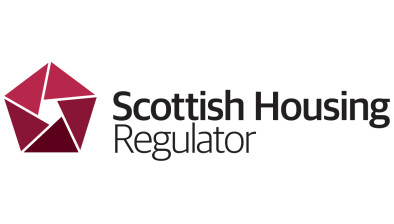Scottish Housing Regulator satisfied over its approach to regulation
The Scottish Housing Regulator (SHR) has said it is “comfortable” that its approach to regulation is “appropriate, proportionate and effective” having conducted a review of its operations in response to MSPs’ concerns of “heavy-handed interventions” and ineffective governance allegations.

The convener of the Scottish Parliament’s local government and communities committee, James Dornan MSP, wrote to the Regulator on April 2 noting reports in Scottish Housing News regarding SHR’s alleged “bullying” behaviour and suggestions that important decisions are being taken at an inappropriate level within the organisation.
In its response, the Regulator concluded that having revisited its governance and decision-making framework in light of the issues raised by the allegations, its board is satisfied with its approach.
“We agreed, following review, that our current standing orders detailing retained and delegated authorities for decisions are appropriate and effective and that the appeal process provides as independent a review of decisions as is possible under current legislation,” wrote SHR chair George Walker.
“We concluded that we have a thorough and robust approach when deciding to use statutory powers with effective checks and balances to ensure a proportionate and appropriate outcome is reached in each case.”
Citing his open letter issued to Scottish Housing News in January, Mr Walker said “we do not tolerate bullying” and “work to be an effective, open and transparent regulator”.
He added: “Our staff are professional, skilled and experienced regulators and all of the decisions that they make are driven by our statutory objective, which is to safeguard and promote the interests of tenants and service users. They always take account of the impact our engagements have on tenants and landlords and make decisions within the regulatory framework set by the board.
“Where there is a serious risk to the interests of tenants and service users our senior staff initiate a case conference where staff with the relevant expertise consider and debate all the evidence. This allows a high degree of internal challenge to help staff to find the most proportionate and effective response to protect the interests of tenants and others who use social landlords’ services.
“We understand that, at times, organisations or individuals disagree or are unhappy with our decision to use or consider using powers. As a Regulator, there will be times when we have to have challenging conversations. Our staff are trained to make these constructive and appropriate.”
The Parliament committee had ordered the Regulator to give clarification on four particular areas of concern, to which it set out detailed responses.
Asked how the Regulator ensures that its own governance arrangements meet all statutory and best practice requirements, it replied: “In the context of recent allegations in the media, our board scrutinised all the elements of our governance framework and decision-making around the use of statutory powers and our approach to complaints.”
The Regulator added: “As an organisation that continues to listen and learn, we are committed to examining how we further enhance the transparency of our decision-making especially around use of statutory powers.
“We have made governance central to our internal audit programme for 2020/21. Our audit and risk assurance committee has agreed our independent internal auditors will review statutory intervention, implementation of the new model complaints procedures and the refresh of our statutory manager list.”
SHR said it has reviewed number of aspects of how it regulates over the last few years including:
- notifiable events;
- its approach to open data;
- regulatory consents;
- its approach to GDPR; and
- how it handled the review of its Regulatory Framework.
The Regulator’s board and management team also completed an intensive training workshop with an industry expert on governance in January.
Asked how it ensures that the evidence base behind any negative findings about an RSL is clear so that the RSL knows what it has to do to put things right, it responded: “We have continued to learn from our experience of using statutory powers to develop and adapt our structure, resources and approaches. We continuously develop and adapt how we assess risk, reflecting experience from previous interventions.”
A particular area of concern followed a Freedom of Information request which found that only one of 12 decisions to take statutory action was sanctioned by the SHR board, with the rest being authorised by a third-tier assistant director.
The Regulator responded: “In all interventions, weak governance was found to be at the root of problems. Governing body members were not provided with, did not ask for, or failed to understand the information needed to carry out their role. They did not seek or receive appropriate assurance. Our legislation means we cannot use statutory powers until an RSL has failed to meet regulatory requirements or standards, but where we can, we will always engage with an RSL to prevent it reaching the point of failure.”
It added: “In the twelve cases we intervened because the landlord had failed to meet the standards of governance and financial management or other regulatory requirements. In each case, the landlord was unable, or sometimes unwilling, to remedy failures. This presented a serious risk to the interests of tenants and service users. In almost all RSL interventions, there was a failure of leadership. The cultures in some RSLs left them vulnerable to poor behaviours and incompetence that led to serious problems. Some of those in leadership disregarded controls aimed at protecting the RSL.
“Well-run landlords take quick and effective action to tackle problems, inform us and advise us on their plans to address the situation. Where we have had to intervene, all RSLs, apart from one, had failed to recognise or tackle the problems they had. We appoint managers and governing body appointees only where the organisation does not have the capacity and/or willingness to make changes without external, directed support. Our first preference is always to support an organisation with capacity to improve without using statutory powers.
“All our intervention cases have followed a significant period of engagement during which we raised concerns with the landlord, engaged to establish facts and evidence, and understood the landlord’s plans, capacity and willingness to address non-compliance or weakness. These are never easy conversations for the landlord or SHR. But this is the role of a regulator. We understand that hearing an organisation is failing or has serious issues is not easy to take on board. Only after this engagement process do we make a judgement on using statutory powers based on the significant body of evidence gathered.”
In its response to the question of how the SHR seeks to audit the impact of its inspections on RSLs the Regulator said it “adopts a risk-based and proportionate approach to regulating social landlords”.
It added “We launched our new Regulatory Framework almost a year ago, following an inclusive, year-long conversation with tenants, landlords, representative bodies, funders and others. To complement our Regulatory Framework, we also publish a wide range of guidance and advice explaining how we regulate, including on whistleblowing. We plan to publish further material on how we use our powers.
“It is important that we are transparent about, and accountable for, how we use our powers. We, therefore, publish a report each time we use statutory intervention powers after that intervention has concluded. We have completed our intervention in nine of the 12 landlords referred to above. In each case, the result is an organisation which is stronger, complies with regulatory requirements and standards, and is able to better serve its tenants and local communities.”
Mr Walker encouraged the committee to refer to SHR’s intervention reports for more information and to engage directly with the RSLs involved for their views on the appropriateness and effectiveness of the intervention.
Finally, on whether the SHR carries out any cost-benefit analysis of different methods of inspections and the impact they may have on RSL resources and, potentially on tenants, the Regulator said: “SHR always considers the significance of the landlord’s failure and its impact on tenants and service users, the landlord’s capacity to resolve the issue without external support, and the potential impact on the organisation. Our principal consideration is the potential risk to tenant and service user interests if we do not intervene. We take a balanced view of all the risks and costs involved.”
It added: “Our interventions almost always take place in organisations with complex, significant and deep-rooted weaknesses. It can take time for an RSL, supported by statutory intervention, to identify and tackle all the critical issues, up to two years in some cases due to their complexity. We set a remit for statutory managers/appointees in letters of appointment. We regularly monitor progress against remit and the associated costs.”
SHR chair George Walker said: “We welcome our engagement with the Local Government and Communities Committee and the scrutiny it brings.
“Our staff are professional, skilled and experienced regulators and all of the decisions that they make are driven by our statutory objective, which is to safeguard and promote the interests of tenants and service users.
“We welcome and encourage feedback and we have a clear and appropriate route set out on our website for anyone who wishes to raise a concern or to complain about how we work.”







